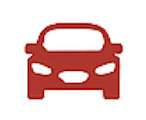A Deep Dive into El Salvador's Thriving Car Culture Scene
Street Passion: The Popularity of Modified Cars and Imports
Modified vehicles are a cornerstone of car culture in El Salvador. From lowered suspensions to custom lighting and sound systems, many young Salvadorans invest significant time and money into personalizing their cars. Japanese imports, especially models from Toyota, Honda, and Nissan, are favored for their affordability and tunability. These cars frequently appear at nighttime meets in San Salvador and Santa Ana, where enthusiasts show off their modifications.
The country has developed a strong subculture around JDM (Japanese Domestic Market) vehicles. Cars like the Toyota Supra, Honda Civic Type R, and Mazda RX-7 are particularly celebrated. Enthusiasts often swap engines, install aftermarket body kits, and share technical knowledge through dedicated social media groups. Many of these builds are done in small local garages, highlighting a DIY spirit that defines much of El Salvador's car scene.
Because of El Salvador's relatively relaxed regulations on vehicle modifications, it is easier than in many countries to see customized vehicles on the road. This has encouraged a visible and growing community of tuners and fabricators, many of whom use their skills as both a creative outlet and a livelihood. Vehicle shows often feature categories like best engine bay, best paint job, and loudest exhaust.
Racing Culture: Legal Events and Underground Scenes
El Salvador's car racing culture has grown alongside its tuning community. While there is limited infrastructure for professional motorsports, grassroots drag racing events are held regularly. One of the most notable locations for sanctioned events is Autódromo Internacional El Jabalí, located near San Juan Opico. The track hosts drag races, circuit events, and drifting exhibitions, drawing large crowds and competitors from around Central America.
Despite the existence of legal venues, underground street racing remains prevalent. Many of these races occur on rural roads or empty stretches of highway late at night. These activities are often coordinated informally through WhatsApp groups and other private channels. While dangerous and illegal, they remain a major draw for adrenaline-seeking drivers and spectators alike.
The government and local law enforcement have taken measures to crack down on unsafe racing, but the challenge lies in the popularity and spontaneous nature of these events. Still, some former street racers have transitioned to organizing legal meets and track days, aiming to create safer environments for competition. As awareness grows, there is increasing support for the development of more organized racing infrastructure.
Classic Cars and American Influence on Salvadoran Roads
Classic cars, especially vintage American models, hold a special place in El Salvador's car culture. Chevrolet Impalas, Ford Mustangs, and Dodge Chargers from the 1960s and 70s are often restored and maintained with great pride. These vehicles are not only symbols of style but also cultural artifacts tied to the era of heavy American influence in the region.
Many of these classics were originally imported during the mid-20th century, when trade with the United States was particularly robust. Over time, owners have passed them down through generations. Some car clubs specialize exclusively in vintage restorations and organize annual parades or exhibitions where these well-preserved vehicles are put on display.
Cruise nights featuring lowriders and muscle cars occur in areas like La Libertad and Soyapango. These gatherings provide opportunities for intergenerational bonding, where older car enthusiasts share stories and tips with younger hobbyists. The blend of American muscle and Salvadoran customization is a unique fusion that reflects the country's broader cultural ties to the U.S.
Local Car Clubs and the Role of Community
Car clubs are the heart of the car enthusiast community in El Salvador. These clubs are often tight-knit, with members collaborating on builds, attending charity drives, and hosting regional meetups. Clubs such as El Salvador Tuning Club and Street Racing El Salvador serve as hubs for information exchange and social interaction.
Community outreach is an unexpected but important component of car culture in the country. Car clubs have been known to organize events that benefit local causes, such as fundraisers for hospitals, back-to-school drives, and earthquake relief efforts. This charitable involvement helps legitimize the car scene and promotes a positive public image, especially in urban areas where tuning culture might otherwise be stigmatized.
Social media plays a vital role in sustaining these communities. Platforms like Facebook and Instagram allow clubs to coordinate events and showcase member vehicles. Through online engagement, many Salvadoran car fans stay connected with global automotive trends and incorporate those styles into their own projects.
Economic and Social Dimensions of Car Ownership
Owning a car in El Salvador carries both economic and social implications. Due to limited public transportation infrastructure in many parts of the country, private vehicle ownership is often essential for commuting, especially in rural and semi-urban areas. Cars represent mobility, autonomy, and upward mobility for many Salvadorans.
The used car market plays a dominant role in vehicle access. Many cars are imported from the United States, including those sold through auction sites or salvaged after accidents. These vehicles are often repaired and resold locally at more affordable prices, making them accessible to middle- and lower-income households. Skilled mechanics and body shops are crucial to this process, supporting a robust secondary auto economy.
There is also a growing interest in fuel-efficient vehicles and electric cars, though adoption remains limited due to infrastructure and cost barriers. Nonetheless, hybrid models like the Toyota Prius are gradually gaining visibility. As the country continues to modernize its roadways and regulations, these newer technologies may become more commonplace in the Salvadoran car landscape.
